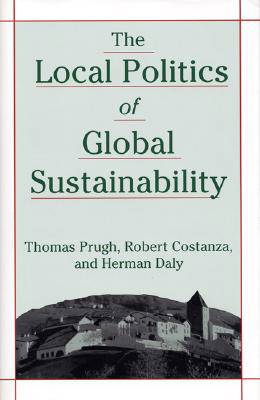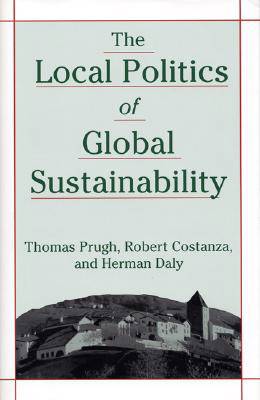
- Retrait gratuit dans votre magasin Club
- 7.000.000 titres dans notre catalogue
- Payer en toute sécurité
- Toujours un magasin près de chez vous
- Retrait gratuit dans votre magasin Club
- 7.000.0000 titres dans notre catalogue
- Payer en toute sécurité
- Toujours un magasin près de chez vous
The Local Politics of Global Sustainability
Thomas Prugh, Robert Costanza, Herman E DalyDescription
The most difficult questions of sustainability are not about technology; they are about values. Answers to such questions cannot be found by asking the "experts," but can only be resolved in the political arena. In The Local Politics of Global Sustainability, author Thomas Prugh, with Robert Costanza and Herman Daly, two ofthe leading thinkers in the field of ecological economics, explore the kind of politics that can help enable us to achieve a sustainable world of our choice, rather than one imposed by external forces.
The authors begin by considering the biophysical and economic dimensions of the environmental crisis, and tracing the crisis in political discourse and our public lives to its roots. They then offer an in-depth examination of the elements of a re-energized political system that could lead to the development of more sustainable communities. Based on a type of self-governance that political scientist Benjamin Barber calls "strong democracy," the politics is one of engagement rather than consignment, empowering citizens by directly involving them in community decisionmaking. After describing how it should work, the authors provide examples of communities that are experimenting with various features of strong democratic systems.
The Local Politics of Global Sustainability explains in engaging, accessible prose the crucial biophysical, economic, and social issues involved with achieving sustainability. It offers a readable exploration of the political implications of ecological economics and will be an essential work for anyone involved in that field, as well as for students and scholars in environmental politics and policy, and anyone concerned with the theory and practical applications of the concept of sustainable development.
Spécifications
Parties prenantes
- Auteur(s) :
- Editeur:
Contenu
- Nombre de pages :
- 196
- Langue:
- Anglais
Caractéristiques
- EAN:
- 9781559637442
- Date de parution :
- 01-12-99
- Format:
- Livre broché
- Format numérique:
- Trade paperback (VS)
- Dimensions :
- 153 mm x 227 mm
- Poids :
- 290 g

Les avis
Nous publions uniquement les avis qui respectent les conditions requises. Consultez nos conditions pour les avis.






